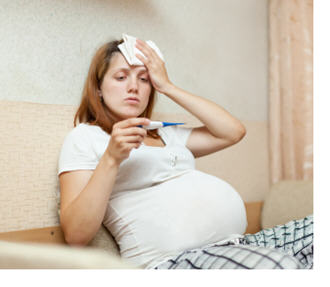
Hospital-Diagnosed Maternal Infections Linked to Increased Autism Risk
December 23, 2013—Hospital-diagnosed maternal bacterial infections during pregnancy were associated with an increased risk of autism spectrum disorders in children, according to a Kaiser Permanente study published Dec. 23 in the Journal of Autism and Developmental Disorders.
The research contributes new evidence to a body of scientific literature on the role of infection in autism risk and points to areas for further examination.
The study included 407 children with autism and 2,075 matched children who did not have autism. The study included infants born between January 1995 and June 1999 who remained members of the Kaiser Permanente health plan for at least two years following birth.
"Though infections in pregnant women are fairly common, in this study most were not associated with an increased risk of autism," said Lisa A. Croen, PhD, research scientist with the Kaiser Permanente Division of Research and senior author of the study. "Only bacterial infections diagnosed in the hospital were associated with an increased risk."
"Infections diagnosed in a hospital setting were more common among mothers of children who developed an ASD compared with mothers of children who did not develop an ASD," Croen further explained.
Women with bacterial infections diagnosed during a hospitalization (including of the genitals, urinary tract and amniotic fluid) had a 58 percent greater risk of having a child with an ASD. While not very common in any of the mothers studied (1.5 percent of mothers of a child with ASD vs. 0.5 percent of mothers of a child without ASD), infections diagnosed during a hospitalization in the second trimester were associated with children having more than a three-fold increased risk of developing ASD.
"Infections diagnosed in an inpatient setting may represent more severe infections, and these were associated with increased risk of ASD," said Ousseny Zerbo, PhD, research fellow with the Kaiser Permanente Division of Research and the study's lead author.
While the mechanism for how maternal infections may influence autism risk has not been firmly established, Zerbo said animal tests have shown that immune-system responses to infections during pregnancy may influence the neurological development of the fetus.
"Our findings indicate that although most infections during pregnancy were not associated with autism in the child, there appears to be some increased risk for autism," Zerbo said. "It would be prudent for pregnant women to contact their doctor if they suspect an infection."
ARTICLE:
"Maternal Infection During Pregnancy and Autism Spectrum Disorders," Zerbo, Ousseny; Qian, Yinge; Yoshida, Cathleen; Grether, Judith K.; Water, Judy; Croen, Lisa. Journal of Autism and Developmental Disorders. December 2013, DOI: 10.1007/s10803-013-2016-3.
RELATED RESEARCH:
Autism Linked with Excess of Neurons in Prefrontal Cortex
San Diego; November 8, 2011—A study by researchers at the University of California, San Diego Autism Center of Excellenceshows that brain overgrowth in boys with autism involves an abnormal, excess number of neurons in areas of the brain associated with social, communication and cognitive development.
Gene Expression Abnormalities in Autism Identified
San Diego; March 22, 2012—A study led by Eric Courchesne, Ph.D., director of the Autism Center of Excellence at the University of California, San Diego School of Medicine has, for the first time, identified in young autism patients genetic mechanisms involved in abnormal early brain development and overgrowth that occurs in the disorder. The findings suggest novel genetic and molecular targets that could lead to discoveries of new prevention strategies and treatment for the disorder.
(Full story . . . )
